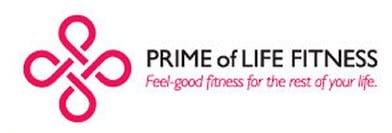If you think being a senior means being condemned to a life of inactivity and pain because of aching joints, fragile bones, chronic illness and mental decline, I have good news for you. There is a fitness program for you that may prevent some of those issues if you start soon enough. And even if you already have chronic, debilitating health issues, this fitness program can relieve some of your pain and can dramatically improve your quality of life.
What Is Functional Fitness?
Functional fitness is a style of fitness training that emphasizes functionality in areas of daily life as opposed to typical athletic measures of fitness. So while traditional fitness programs may be concerned with how fast you can run or how much weight you can lift, a functional fitness program trains your body to move efficiently and can help seniors (and everyone, for that matter) maintain mobility and independence longer.
Instead of just training individual muscles, functional fitness trains muscles and joints to move together properly. It considers flexibility, range of motion, balance and coordination, along with strength and endurance. A functional fitness program includes training in all five essential movement patterns, and trains the muscles that work on each of the joints.
Because we're training not just for strength but for movement, a functional fitness program teaches balance and coordination, which can prevent debilitating falls in seniors. Because we're training for movement, we address the flexibility and range of motion at each joint, and many seniors find their joint pain decreases while their mobility and independence increase.
How Does Functional Fitness Differ from Traditional Fitness Programs?
While a traditional fitness program might begin with an assessment of aerobic capacity and 1 rep max (maximum weight lifting capacity), a functional fitness program will begin with an assessment of posture, movement patterns, flexibility and balance.
 From this initial assessment we can design a fitness program that addresses each client's unique needs. So a client with knee pain may get a program that emphasizes strengthening the muscles that stabilize the knees and trains the hips and core muscles to fire efficiently and relieve some of the pressure on the knee joints. A client with limited shoulder mobility may need a program to repair an old rotator cuff injury. And a client who has experienced a fall may need a program that emphasizes core stability and balance techniques.
From this initial assessment we can design a fitness program that addresses each client's unique needs. So a client with knee pain may get a program that emphasizes strengthening the muscles that stabilize the knees and trains the hips and core muscles to fire efficiently and relieve some of the pressure on the knee joints. A client with limited shoulder mobility may need a program to repair an old rotator cuff injury. And a client who has experienced a fall may need a program that emphasizes core stability and balance techniques.
Not every functional fitness program has an emphasis on loss of function, however. Many seniors are simply looking for a fitness program that eases the aches and pains that come from being sedentary, or they want the strength and endurance to keep up with active grandchildren, or the flexibility and core strength to hit a monster drive off the tee box.
The goal in each instance is to design a fitness program that feels good both in the doing and in the days after and that helps seniors maintain the highest quality of life for as long as possible.
What are some of the activities you plan to continue well into your golden years? Share your tips in the comments section below.
(Image credit: Catherine Scott)


